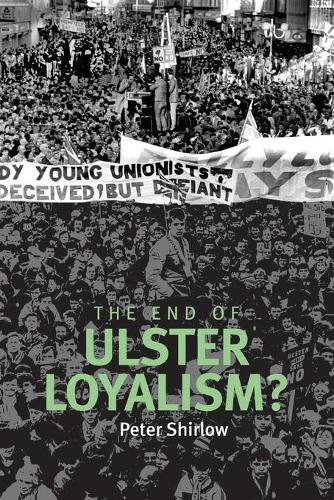
The End of Ulster Loyalism
(Paperback)
Available Formats
Publishing Details
The End of Ulster Loyalism
By (Author) Peter Shirlow
Manchester University Press
Manchester University Press
2nd July 2012
United Kingdom
Classifications
Professional and Scholarly
320.9416
Physical Properties
Paperback
256
Width 156mm, Height 234mm
Description
The end of Ulster loyalism explores the dynamics and divisions within paramilitary groups since the mid-1970s. It, despite contrary public opinion, details and explains the nature of Loyalist conflict transformation. A key model of transition that is relevant to arenas beyond Northern Ireland. The book also discusses the nature and extent of loyalist violence and provides a rarely heard voice regarding State-led collusion. It locates Loyalist ideas and opinions that have been largely invisible and highlights how an extensive element of positive Loyalist renewal has been purposefully suppressed and unmentioned. It is a key text for any student of politics, criminology, human geography and conflict and conflict transformation and is particularly relevant to the scholarship of pro-State groups who are infrequently considered in academic deliberations. A book of both hope and despair that emerges from a destabilising past and a yet-to-be-decided future. -- .
Reviews
There is, however, another unexpected side to loyalism, as Peter Shirlow's book demonstates.
Shirlow distinguishes between the 'idiocy' of rejectionist loyalism willing to engage with the demands of the Catholic community and to think imaginatively about conflict resolution.
One aspect of the Northern Irish milieu is also explored with admirable dexterity in Peter Shirlow's The End of Ulster Loyalism
'This book will be of significant interest to scholars interested in post-conflict Northern Ireland and in other societies emerging from conflict. It is written in a scholarly manner with the clear intention of appealing, principally, to an academic readership. Furthermore, it also has genuine interdisciplinary appeal. As such, it will be of interest to scholars from political science, criminology, conflict studies and political sociology.'
Peter Munce, Political Studies Review Volume 12, Issue 3, September 2014
'A thoroughly written piece that emanates ideas of sociology and criminology.'
Shared Future News
Author Bio
Peter Shirlow is a Senior Lecture in the School of Law at Queens University Belfast
